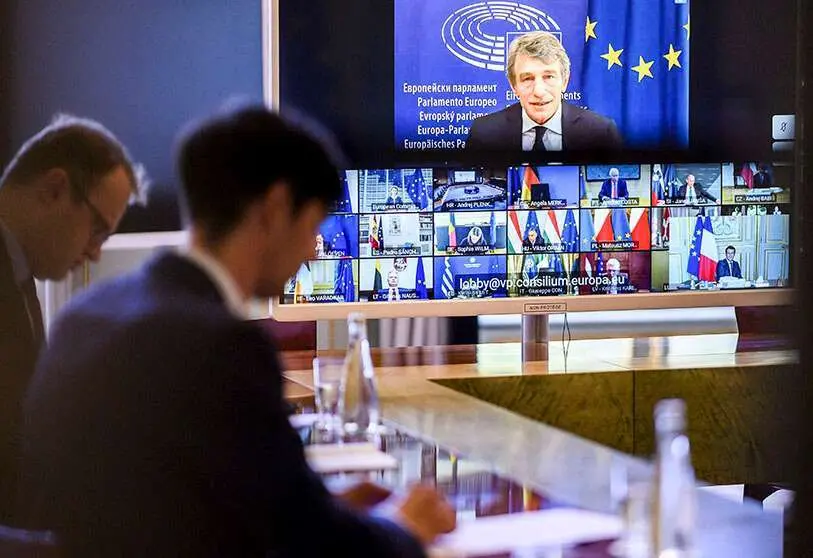The Hamiltonian moment of the European Union

Since the severe financial crisis of 2008, there has been a proliferation of predictions about the disappearance of the European Union. Certainly, the critical moments have put it to the test and those who were betting on implosion were playing with a good chance of being right. The rippling of the migration crisis and the energy shreds wasted in the brexit have tested the soundness of the greatest project of unification and voluntary surrender of sovereignty in history. Now, the coronavirus pandemic has triggered a new seismic movement, which still threatens the foundations of the EU.
After the first hesitations and the consequent disappointments of the citizens, who were stunned by the lack of coordination between the Member States and by the very fact that many of them succumbed to the temptation of every man for himself, the reaction and the plans to overcome the crisis have turned disappointment into hope. The enormous funding designed to alleviate the damage caused by the crisis may also become the catapult for a reindustrialisation of Europe. A plan which, without going as far as mutualisation of debt, something expressly forbidden by the EU treaties, will allow debt to be taken on by the European Commission on behalf of the 27 Member States. In other words, a decisive step towards federalisation, a Hamiltonian process which would not be completely new either, since it actually began with the introduction of the euro, the single currency.
The final approval of this fund will be very difficult, but it cannot be delayed too long, since, if it fails, the collapse of southern Europe will be instantaneous, dragging the whole European edifice down with it. The crux of the matter will be to agree on the urgent needs of a Mediterranean Club of questionable reputation for austerity and thrift, with the frugality of the richest and healthiest, especially the Netherlands, Sweden, Denmark and Austria.
French President Emmanuel Macron has not hesitated to multiply his efforts with both German Chancellor Angela Merkel and Dutch Prime Minister Mark Rutte. The latter's position is all the more delicate as general elections are about to take place in which polls predict a strong increase in supporters of the ultra-conservative Freedom Party, one of the biggest opponents of both the increase in the Union's multiannual budgetary framework and the donation without compensation of part of the Recovery and Resilience Fund.
Under these conditions, it is obvious that the candidate countries to receive the largest amounts from this fund of EUR 1.5 billion, that is to say Spain and Italy in particular, will have to present absolutely impeccable projects to which they will be allocating this money. This is undoubtedly a fundamental moment for the relaunch of European construction itself, based on the modernisation that each State can undertake thanks to this extraordinary funding. It is also a time to realise the maxim that, from a crisis, from a plague such as the pandemic, another Renaissance can emerge, evoking that explosion of creativity and prosperity following the epidemiological disaster of the 14th century.
Just a few days before Germany takes over the six-monthly rotating presidency of the EU, it has been a pleasant surprise to see the radical shift by the EU's leading power from reticence and austerity at all costs to the view that, without transfers from the richest to the least within the Community framework itself, its own prosperity would be in danger. If in the 2008 crisis the EU was really on the brink of the abyss, Merkel has looked at the possible collapse of the single market, the cornerstone of the Community structure.
The German Chancellor will therefore have to conciliate not only the north and south of Europe, but also to convince everyone that it is time to give up a little more national sovereignty in favour of a Community instrument that will enable rapid executive decisions to be taken, medium- and long-term strategies to be devised and implemented, and own funds to be made available for this purpose. Almost nothing! However, today, in the midst of the storm caused by the pandemic, only a leadership such as that of Angela Merkel could promote the decisive step for the great transformation of the European Union. Moreover, to stop being a mere spectator, small and annoying, of the struggle between states and China, and to rise to the forefront of the international scene.
This will only be achieved if it also preserves the cohesion of the societies of its 27 members, which obviously means narrowing as much as possible the inequality gaps that the pandemic has opened up and exposed.

